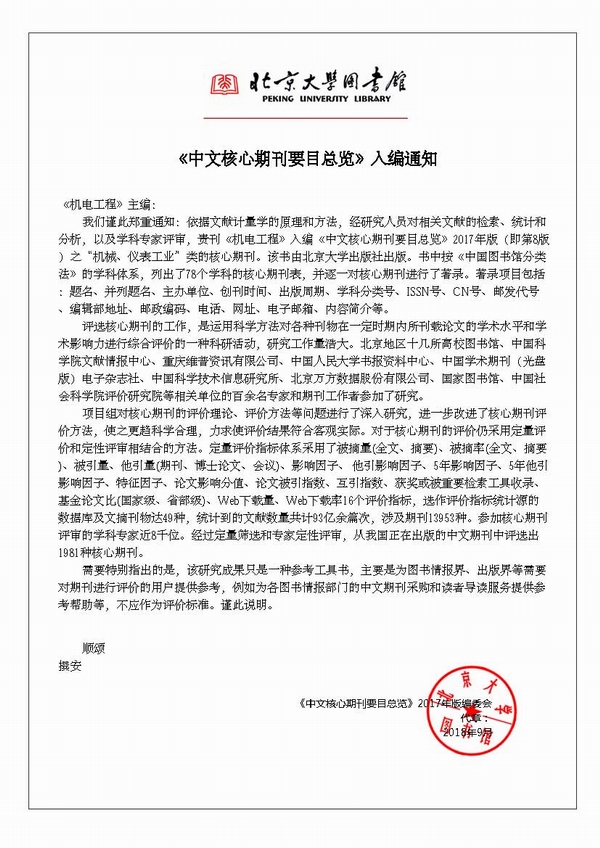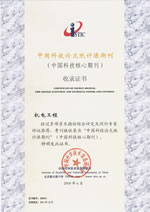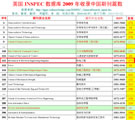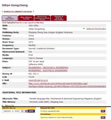
Founded in 1971 >
Chinese Sci-tech Core Periodicals >
British Science Abstracts (SA, INSPEC) Indexed Journals >
United States, Cambridge Scientific Abstract: Technology (CSA: T) Indexed Journals >
United States, Ulrich's Periodicals Directory(UPD)Indexed Journals >
United States, Cambridge Scientific Abstract: Natural Science (CSA: NS) Indexed Journals >
Poland ,Index of Copernicus(IC) Indexed Journals >
International Standard Serial Number:
ISSN 1001-4551
Sponsor:
Zhejiang University;
Zhejiang Machinery and Electrical Group
Edited by:
Editorial of Journal of Mechanical & Electrical Engineering
Chief Editor:
ZHAO Qun
Vice Chief Editor:
TANG ren-zhong,
LUO Xiang-yang
Tel:
86-571-87041360,87239525
Fax:
86-571-87239571
Add:
No.9 Gaoguannong,Daxue Road,Hangzhou,China
P.C:
310009
E-mail:
meem_contribute@163.com
Abstract: In the reliability assignment of the adjusting mechanism of variable stator vanes of an aero-engine, the importance and complexity of its subsystems obtained by the traditional AGREE method deviate from the actual importance and complexity of the subsystems, and affect the rationality of the reliability assignment results of each subsystem. To address this problem, the importance and complexity in the traditional AGREE method were revised and an improved AGREE method was proposed. Firstly, the importance was modified by considering the degree of influence of different subsystem failures on the system, and the complexity was modified by considering the number of critical parts in the subsystem that would lead to mechanism failure, and the traditional AGREE method was improved. Then, the steps of reliability index allocation using the improved AGREE allocation method were proposed. Finally, the allocation of the reliability index of the static leaf adjustment mechanism was completed using the improved AGREE method. The results of the study show that the improved AGREE method can be used to complete the reliability index allocation of the adjusting mechanism of variable stator vanes, and the allocation result achieves the allocation of lower reliability indexes for the subsystem with relatively small failure hazard and higher reliability indexes for the subsystem with more parts but fewer critical parts, and the allocation result is more reasonable compared with the allocation result of the traditional AGREE method.
Key words: reliability analysis of mechanical system; AGREE distributive method; importance and complexity of system; importance correction; reliability key parts; failure mode, effects and criticality analysis (FMECA)








